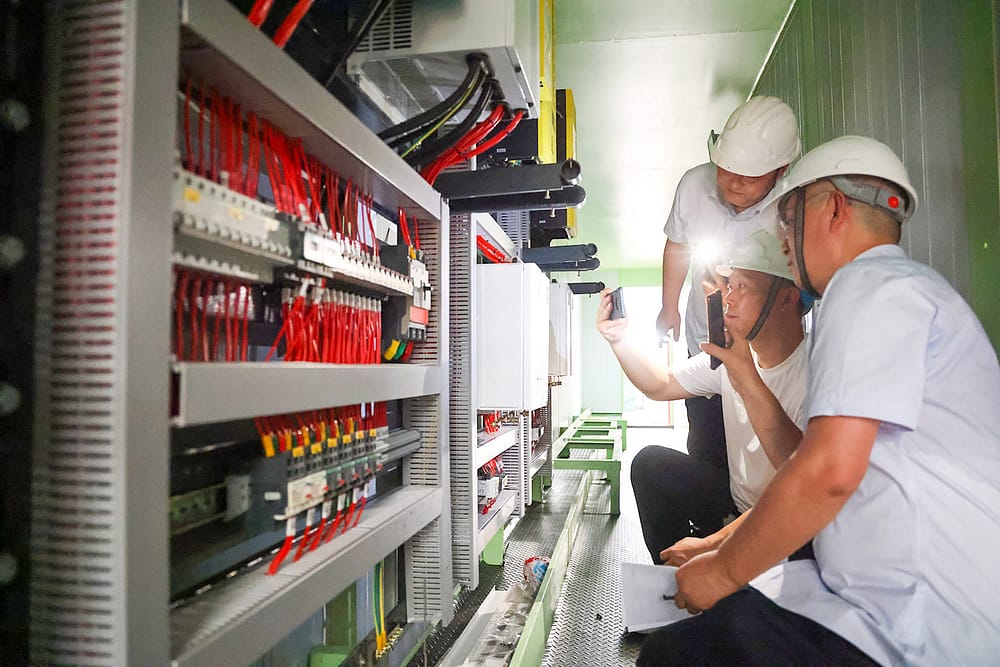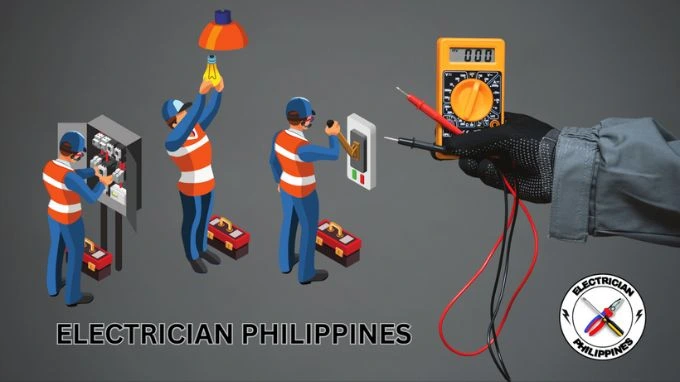Dedicated technical support for electrical industry challenges.
Dedicated technical support for electrical industry challenges.
Blog Article
Professional Solutions for Electrical System Troubleshooting and Fixings
Effective fixing and repair service of electrical systems call for a systematic approach, leveraging both advanced analysis devices and skilled competence. Typical problems such as circuit overloads and defective wiring demand immediate interest, yet the intricacies of electrical systems can typically obscure the hidden troubles. Security methods are critical, as even minor oversights can cause substantial hazards. Understanding when to involve a specialist can make all the distinction in making sure both safety and security and system integrity. As we discover the necessary elements of electrical troubleshooting, the implications of neglecting these finest techniques come to be progressively evident.

Typical Electrical Issues
While electric systems are created for reliability, they can frequently encounter a selection of common issues that may interfere with capability and safety. One common problem is circuit overload, which takes place when a lot of devices attract power from a solitary circuit, causing tripped breakers or blown merges. technical support for electrical industry. This can not only hamper electric performance but also posture a fire risk
One more frequent problem is damaged electrical wiring, commonly due to age, wear, or incorrect installment. Harmed or frayed cords can lead to short circuits, causing interruptions or electric shocks. Additionally, loosened connections can cause periodic power loss, creating irritating and possibly harmful circumstances.
Ground mistakes are another concern, especially in damp or damp environments where electric equipment is used. These mistakes can trigger serious safety dangers, demanding instant focus to guarantee appropriate grounding and circuit protection.
Lastly, flickering lights can suggest issues varying from overloaded circuits to malfunctioning light fixtures. Identifying these typical electric problems is critical for keeping the stability and safety of electric systems, ensuring they run effectively and efficiently. Dealing with these issues quickly can protect against much more extreme problems and enhance total system integrity.
Analysis Tools and Methods
Utilizing accurate analysis tools and methods is important for efficiently determining and fixing electrical system problems. Various tools help with precise evaluations, varying from straightforward multimeters to advanced oscilloscopes - technical support for electrical industry. Multimeters are fundamental for measuring voltage, present, and resistance, making it possible for service technicians to swiftly pinpoint defective parts or links
Clamp meters are specifically valuable for measuring present without interrupting the circuit, boosting security throughout diagnostics. For more complicated troubleshooting, oscilloscopes allow for the visualization of electric signals with time, supplying understandings into waveform anomalies that may show underlying problems.
In enhancement to these tools, infrared thermography is invaluable for detecting overheating components, which can signify upcoming failures. Insulation resistance testers better assist in recognizing compromised insulation, essential for stopping electrical hazards.
Techniques such as aesthetic assessments, continuity examinations, and circuit tracing are additionally indispensable to an efficient diagnostic process. By incorporating these tools and techniques, specialists can establish a comprehensive understanding of electric systems, ensuring accurate medical diagnoses and reliable repair services. Eventually, leveraging the right analysis resources not only improves repairing effectiveness however also adds to the long life and safety of electrical setups.
Step-by-Step Troubleshooting Overview

Next, utilize diagnostic tools such as multimeters and circuit testers to inspect for connection, voltage, and current flow in the circuit. Start at the source of power, validating that it is operational, then trace the circuit action by action, examining each part along the road. File your searchings for to maintain clarity throughout the procedure.
As soon as you have recognized the defective component, isolate it from the circuit. Perform needed fixings or substitutes, guaranteeing that all circuitry and connections are secure. After addressing the problem, recheck the entire system to verify that it operates properly.
Safety And Security Safety Measures During Fixings
Making certain safety throughout electrical fixings is critical to stop crashes and injuries. Prior to starting any kind of work, it is vital to turn off the power supply at the circuit breaker and confirm that the circuit is de-energized using a dependable voltage tester. Individual protective tools (PPE), including insulated handwear covers and security goggles, must be put on to minimize the threat of electric shock and eye injuries.
Utilizing tools with shielded takes care of can additionally enhance safety and security. It is also crucial to stay clear of working on electric systems in damp or moist problems, as wetness dramatically increases the threat of electrical shock.
In addition, recognize the surroundings. Protected loose garments and link back long hair to find this avoid any complication with electrical Get the facts parts. When collaborating with high voltages, think about having a second individual existing to help in case of an emergency. Lastly, acquaint yourself with the certain electrical codes and guidelines relevant to your location to guarantee conformity and safety and security during the repair process.
When to Call an Expert
While safety preventative measures are essential for any type of electrical repair work, there are situations where the intricacy or range of the job requires the know-how of an expert electrical contractor. Home owners need to be especially mindful when managing issues that involve circuit breakers, electric panels, or the major power supply. Any kind of signs of electrical fires, such as burned smells or flickering lights, warrant immediate professional attention.
Furthermore, if you experience consistent tripping of breaker or frequent electrical surges, these may indicate underlying issues that call for specialized diagnostic tools and understanding. Tasks that necessitate comprehensive rewiring, setup of brand-new circuits, or connections to high-voltage systems ought to constantly be delegated accredited electrical contractors, as incorrect handling can lead to severe risks.
Furthermore, regulative compliance is crucial in electric job. Professionals recognize with regional codes and regulations, making certain that all repairs satisfy safety and security criteria. If you're ever in doubt concerning your skills or the seriousness of the concern, err on the side of care and seek advice from a certified electrical expert. Prioritizing security and reliability will ultimately secure both your home and health.
Final Thought
In final thought, reliable fixing and repair of electric systems call for a methodical technique, leveraging sophisticated analysis devices and adherence to safety preventative measures. By determining usual electrical issues and using a structured troubleshooting overview, lots of concerns can be solved successfully. However, in my review here instances of intricacy or safety issues, seeking advice from a certified electrical contractor stays important. This ensures not just the stability of the electrical system however also the safety of individuals and home entailed.
Report this page